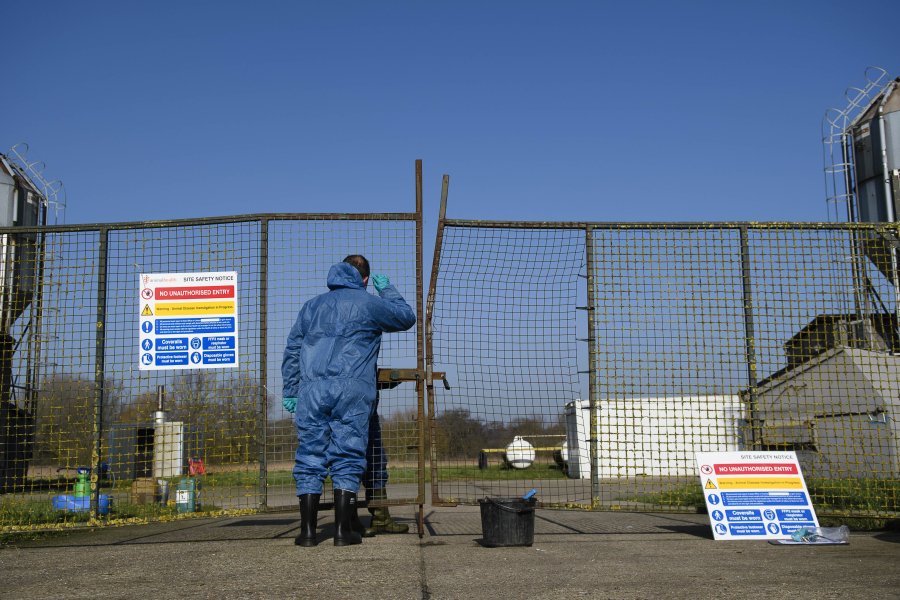Avian influenza confirmed in wild birds in Worcestershire

The government has confirmed a case of H5N1 avian influenza at a wild bird rescue centre in Worcestershire and all birds affected will be culled.
A 3km and 10km temporary control zone has also been put in place around the infected premises to limit the risk of bird flu spreading, Defra said today (26 October).
A detailed investigation is now underway to determine the most likely source of this outbreak, the department explained.
Wild birds migrating to the UK from mainland Europe during the winter months can carry the disease, and this can lead to cases in poultry and other captive birds.
The affected premises in Worcestershire does not supply poultry, meat or eggs to the commercial food chain.
UK Chief Veterinary Officer Christine Middlemiss confirmed today's outbreak: “We have taken swift action to limit the spread of the disease and any birds at risk of infection will now be humanely culled.
“UK Health Security Agency has confirmed that the risk to public health is very low and the Food Standards Agency has said that bird flu poses a very low risk to food safety for UK consumers.
“As we move into the higher risk period over winter bird keepers should pay extra attention to the health of their birds.
"The best way to tackle this disease is for poultry keepers to ensure that they have strong biosecurity measures in place,” Ms Middlemiss said.
The Regional UK Health Security Agency (UKHSA) Health Protection Team is working with Defra to monitor the situation, and will be providing health advice to people at the site.
Dr Gavin Dabrera, consultant epidemiologist at UKHSA said: “It is important to not touch any sick or dead birds and to make sure to wash your hands thoroughly with soap after contact with any animal.”
Over the last year, 26 outbreaks have been confirmed across the UK, including in kept poultry, captive birds and in over 300 wild birds.
In response, UK-wide measures were introduced in December 2020 to protect poultry from infection from wild birds, including a requirement to temporarily house birds and a ban on bird gatherings.
How can I protect my flock?
Poultry farmers and backyard keepers are being reminded of simple measures they should take to protect their birds against the threat of avian flu.
These apply to people running a large commercial farm, keeping a few hens in their back garden and those rearing game birds.
• Keep the area where birds live clean and tidy, control rats and mice and regularly clean and disinfect any hard surfaces
• Keep chickens and turkeys completely separate from ducks and geese
• Conduct regular maintenance checks on their sheds
• Clean moss off the roofs, empty gutters and remove vegetation between sheds where birds are kept
• Draw up contingency plans for storing bedding and dealing with pests
• Place birds’ feed and water in fully enclosed areas that are protected from wild birds, and remove any spilled feed regularly
• Put fencing around outdoor areas where birds are allowed and limit their access to ponds or areas visited by wild waterfowl
• Clean and disinfect footwear before and after entering premises where birds are kept








